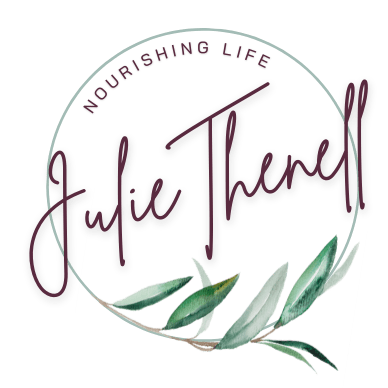What comes to mind when you think of the word DIET?
According to Merriam-Webster, diet = food and drink regularly consumed; habitual nourishment. Diet is also defined as a regimen of eating and drinking sparingly so as to reduce one’s weight.
Ugh!
This second definition can lead to anxiety and obsessive thinking. It’s easy to equate diet with restriction, deprivation, and lack of taste.
But going on a diet is not the same as having a good diet.
The word DIET comes from the Greek word diata, which means “manner of living.” That is to say, diet consists of more than just the foods you eat. It includes everything you take in…the movies you watch, the activities you engage in, and the people you hang out with.
Everything you eat, drink, and are exposed to either feeds or fights disease.
For your body to maintain strength and bounce back from stressful times, it needs quality fuel. Nutrient-rich fat, protein, and carbohydrate (macronutrients) as well as vitamins and minerals (micronutrients).
Unfortunately, when the body and mind are under stress, they react by either skipping meals or reaching for the sweet taste of comfort; often sugary, high-carbohydrate snacks. The outcome of both reactions will send the body further down the stress-spiral, causing the sympathetic nervous system to kick into high gear.
A primarily plant-based diet helps build resilience by supplying vital micronutrients that synergistically support cell growth and recovery. Fiber-rich foods such as fruits and vegetables impact your microbiome, a part of the body often referred to as your second brain.
This doesn’t mean that animal protein is bad for you. Quality protein plays a vital role in helping your body repair cells and make new ones. They are the building blocks of life.
What’s my message? Eat real food to boost your resilience.
“Eat food. Not too much. Mostly plants.”
Michael Pollan ~ author of In Defense of Food
Research shows that processed foods, especially highly processed foods, place us at risk of severe health conditions. The most detrimental component of processed food is sugar. Simple sugar such as glucose causes a rapid increase in blood sugar and is inflammatory to every cell in the body, including neurons in the brain. On the other hand, complex sugars such as beans, lentils, and sweet potatoes do not cause rapid spikes in blood sugar and result in less inflammation.
Any food without an ingredient list falls into the resilience-building category. Think nuts, seeds, fruits, vegetables, herbs, legumes, whole grains, fish, eggs, and spices.
But it’s not just what you eat; it’s how you eat, too. Do you eat on the run? Do you skip meals? Do you find yourself so hungry at times that you start grazing as soon as you walk into the kitchen?
For your body to get the most out of the foods you eat, it must be in a relaxed state. Eating when stressed or distracted blocks the body’s ability to properly digest, absorb, and assimilate nutrients. Under stress, the brain cannot properly signal the production of saliva or release enzymes and an adequate amount of stomach acid to break down food. Eating in a calm and relaxed setting allows the parasympathetic nervous system, also known as the “rest and digest” system, to do its thing.
So what if you reframed your definition of diet? What if you thought of your DIET as your Daily Intake. Everything Thoughtful? Said differently, Don’t Inhale. Enjoy. Think.
Awareness of your eating habits is a first step toward boosting resilience. Take an inventory. Are the foods you eat most often supportive of cell growth and repair, or do they promote inflammation? Do your environment and the people in it allow you to feel relaxed?
The next time you sit down to a meal, turn off the television and set your phone aside. Take three deep breaths before starting your meal. Pause to express gratitude for the food on your plate, the people at your table, and the beauty of your setting. The cells in your body will thank you!
Looking for more tips about how to boost resilience? Check out my previous posts or reach out with a specific question.
I look forward to helping you nourish your resilience.

References:
Andrei, M. (2019, July 29). America’s packaged food is ultra-processed – and it’s a big problem. Retrieved February 28, 2022, from https://www.zmescience.com/science/ultra-processed-food-us-29072019/
Hardasmalani, M. (2017). Building Resilience Through Food. Retrieved February 28, 2022, from https://www.aaem.org/UserFiles/file/WellnessCS17_NovDec-WEB-5.pdf
Letson, E. (2013, August 23). Relax when you eat – it’s more important than you think. Retrieved February 28, 2022, from https://globalnews.ca/news/797580/relax-when-you-eat-its-more-important-than-you-think/





